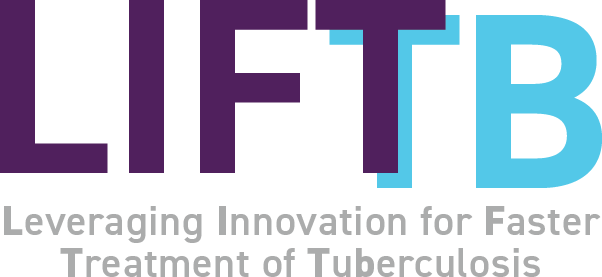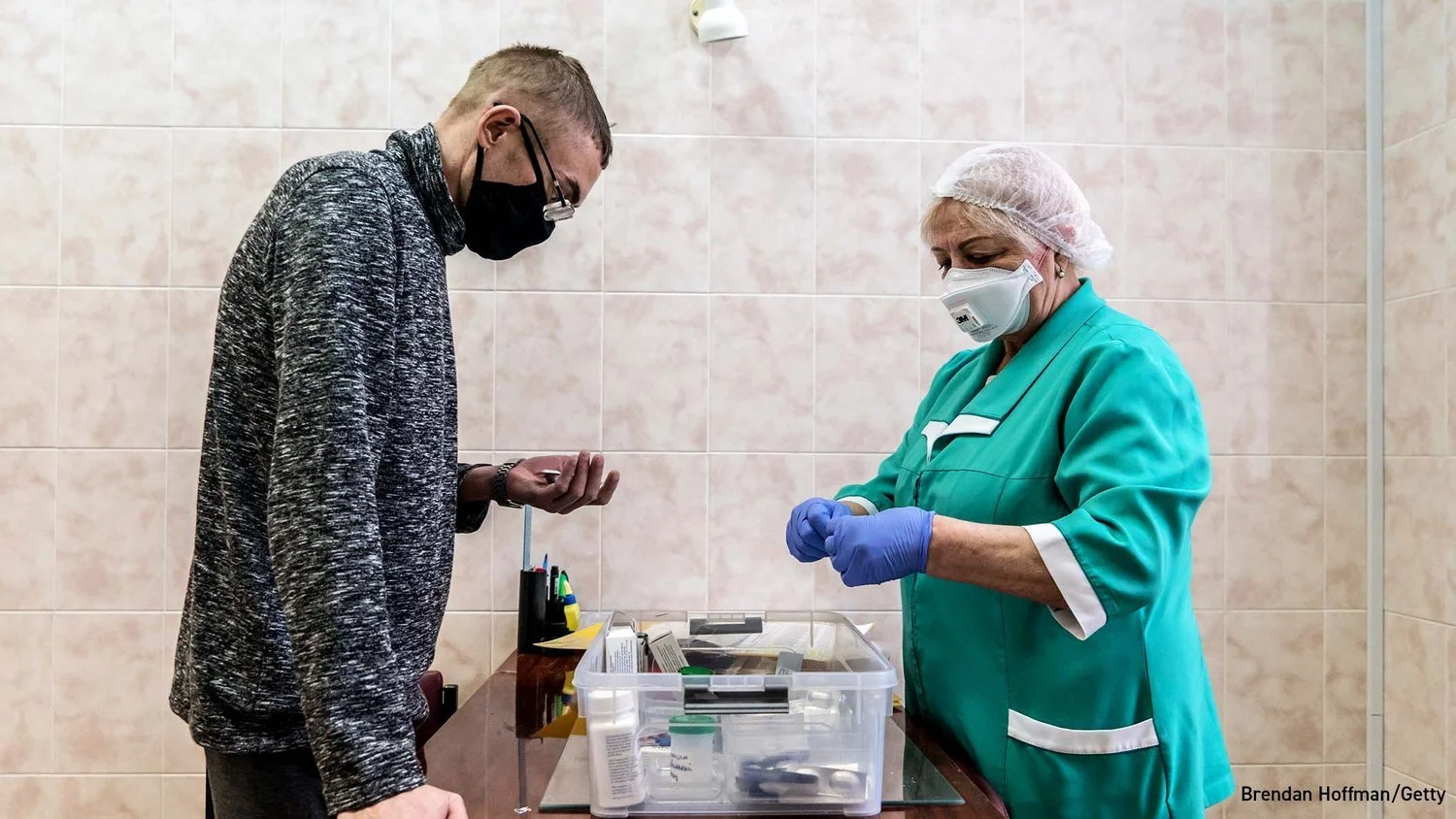TB Alliance Statement on New World Health Organization Rapid Communication on Key Changes to the Treatment of Drug-Resistant Tuberculosis
New Guidelines Have Potential to Transform the TB Treatment Landscape with Six-Month Standard
A drug-resistant TB patient receiving the BPaL regimen in Ukraine as part of the country’s operational research program, 2021.
TB Alliance applauds today’s rapid communication regarding new guidelines for treating drug-resistant tuberculosis (DR-TB) released by the World Health Organization. For the first time, almost all patients with DR-TB can be treated in six months with an all-oral regimen. Based on new clinical evidence presented and published over the past year, the new guidelines allow for the programmatic implementation of treating almost all forms of DR-TB with either BPaLM (a combination of bedaquiline, pretomanid, linezolid and moxifloxacin) or BPaL (bedaquiline, pretomanid and linezolid).
“The WHO has just delivered excellent news for patients. This is a testament to what can be accomplished through long-term, sustained investments in TB research and development,” said Dr. Mel Spigelman, President and CEO, TB Alliance, which developed pretomanid and first demonstrated the benefits of the BPaL regimen. “We now have a path forward for handling the vast majority of cases of DR-TB with only six months of all oral treatment, with simplified drug regimens that have manageable side effects, and with cure rates on the same order of magnitude as the treatment for drug-sensitive TB.”
The rapid communication allows implementation of BPaLM and BPaL regimens under programmatic conditions, stating:
“The 6-month BPaLM regimen, comprising bedaquiline, pretomanid, linezolid (600 mg) and moxifloxacin, may be used programmatically in place of 9-month or longer (>18 months) regimens, in patients (aged ≥15 years) with MDR/RR-TB who have not had previous exposure to bedaquiline, pretomanid and linezolid (defined as >1 month exposure). This regimen may be used without moxifloxacin (BPaL) in the case of documented resistance to fluoroquinolones (in patients with pre-XDR-TB). Drug susceptibility testing (DST) to fluoroquinolones is strongly encouraged, but DST should not delay treatment initiation.”
The rapid communication also notes that:
“The data from the ZeNix study made it possible to identify the linezolid dose that offers the best balance in terms of efficacy and safety in patients aged above 14 years. The assessment of evidence from this study suggested that the optimal dosing of linezolid is 600 mg daily and that programmes should strive to maintain this dose throughout the treatment regimen to ensure optimal efficacy, with the possibility of dose reduction in the event of toxicity or poor tolerability.”
Pretomanid received its first regulatory approval in August 2019 for the treatment of people with certain forms of highly drug-resistant TB. BPaL was most recently evaluated in TB Alliance’s ZeNix trial, a Phase 3 clinical trial that took place in 11 sites across Georgia, Moldova, Russia, and South Africa. The BPaLM regimen was evaluated in the TB-PRACTECAL trial, sponsored by Médecins Sans Frontières/Doctors Without Borders (MSF), which compared three BPaL-based regimens to the local standard of care in the three countries where the trial was run (Belarus, South Africa and Uzbekistan). Primary safety and efficacy results for both ZeNix and TB-PRACTECAL have been submitted to a peer-reviewed journal.
Ukraine was the first country to conduct operational research on how the BPaL regimen performed in clinical practice settings. Its reported preliminary findings also were consistent with the Nix-TB and ZeNix trials, but further implementation of the treatment was disrupted by the current invasion. The regimen has now been procured by more than 35 countries around the world. The number of people potentially eligible for treatment with either BPaLM or BPaL is approximately 500,000 each year.
The new guidelines could have significant implications on the decision-making of many high-TB-burden countries who are implementing efforts to control drug-resistant TB.
About Tuberculosis
Active TB must be treated with a combination of drugs; the most drug-sensitive forms of TB require at least four months of treatment using four anti-TB drugs. An estimated 1.5 million people died of TB in 2020, according to the World Health Organization (WHO), although the precise numbers are not known, and recent research suggests that TB could have killed many more people.
Drug-resistant TB develops when the long, complex, decades-old TB drug regimen is improperly administered, or when people contract TB from others who have drug-resistant disease—highlighting the urgent need to develop better and shorter treatment regimens. In 2020, globally, more than 150,000 cases of drug-resistant TB were detected. However, the World Health Organization estimates that only a third of multi-drug or rifampicin resistant (MDR/RR-TB) are detected—projecting that about half a million cases occur each year. Only an estimated one third of people with drug-resistant TB infections received treatment in 2020 with treatment success rates below 50% in some of the highest burden countries.4
About TB Alliance
TB Alliance is a not-for-profit organization dedicated to finding faster-acting and affordable drug regimens to fight TB. Through innovative science and with partners around the globe, we aim to ensure equitable access to faster, better TB cures that will advance global health and prosperity. TB Alliance operates with support from Australia’s Department of Foreign Affairs and Trade, Bill & Melinda Gates Foundation, Foreign, Commonwealth and Development Office (United Kingdom), Cystic Fibrosis Foundation, Germany’s Federal Ministry of Education and Research through KfW, Global Disease Eradication Fund (Korea), Global Health Innovative Technology Fund, Indonesia Health Fund, Irish Aid, Korea International Cooperation Agency, Medical Research Council (United Kingdom), National Institute of Allergy and Infectious Diseases, Netherlands Ministry of Foreign Affairs, Republic of Korea’s Ministry of Foreign Affairs, and the United States Agency for International Development. For more information, visit www.tballiance.org.

